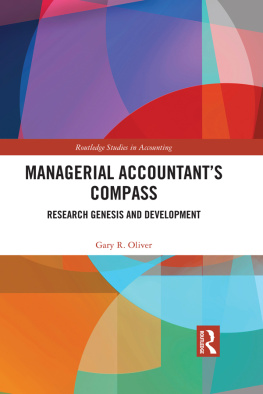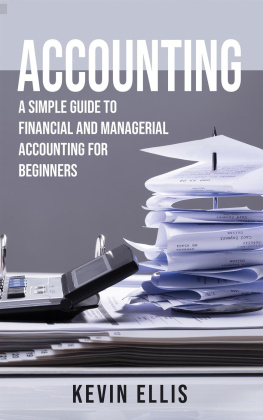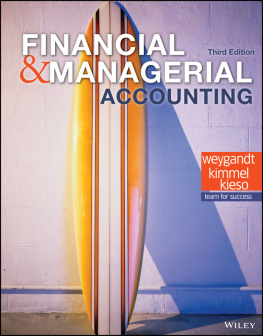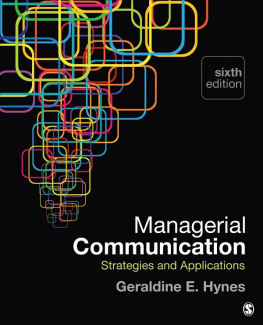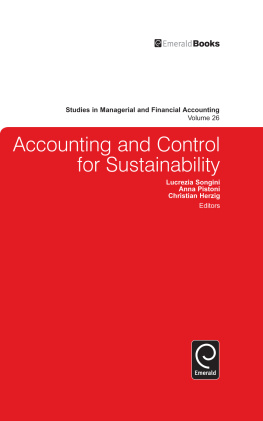First published 2019
by Routledge
711 Third Avenue, New York, NY 10017
and by Routledge
2 Park Square, Milton Park, Abingdon, Oxon, OX14 4RN
Routledge is an imprint of the Taylor & Francis Group, an informa business
2019 Gary R. Oliver
The right of Gary R. Oliver to be identified as author of this work has been asserted by him in accordance with sections 77 and 78 of the Copyright, Designs and Patents Act 1988.
All rights reserved. No part of this book may be reprinted or reproduced or utilised in any form or by any electronic, mechanical, or other means, now known or hereafter invented, including photocopying and recording, or in any information storage or retrieval system, without permission in writing from the publishers.
Trademark notice: Product or corporate names may be trademarks or registered trademarks, and are used only for identification and explanation without intent to infringe.
Library of Congress Cataloging-in-Publication Data
A catalog record for this book has been requested
ISBN: 978-1-138-09454-3 (hbk)
ISBN: 978-1-315-10600-7 (ebk)
Typeset in Sabon
by Apex CoVantage, LLC

Having been a managerial accountant in industry, government and the education sector for over 30 years, I found they all had one thing in common. The everyday expectations that my manager had of me were always different from what I was told when I was hired. (The expectations of non-accountant managers were also different to what my hiring manager had outlined.) This was not an error in specifying my role and responsibilities. Nor was it an error in distinguishing between different levels of managerial accountant duties, although this frequently played a part. The symptoms of the problem were being asked for information well beyond the terms of reference I had been given for a task or project, being asked ad hoc questions on totally unrelated matters in cost and managerial accounting, and being assigned to fix problems left unresolved after earlier attempts by other managers. Sitting in meetings with other managerial accountants, I found the same was true for them.
In the tradition of self-help, I started tentatively assembling my own answer to this problem, always expecting to find a book or article that described the problems I had witnessed and setting out a systematic solution. I began with the history of the profession but found little of use. Outside it, there were some promising lines of enquiry. Systems and cybernetics asked for interrelationships to be considered (e.g., Checkland, 1999). Neurolinguistic programming used language and other types of communication to enable a person to recode brain responses to stimuli (Bandler & Grinder, 1989). Social complexity theory emphasized starting points, emergent phenomena, and chaos (Waldrop, 1992). At the same time, I was asking others what criteria they used, and that become the first generation of the managerial accountants compass.
Eventually, when I began teaching managerial accounting to postgraduate students in 2009 using case studies, I revised the original analytical framework then called the managerial accounting compass. The third generation is described in this book based on classroom experience and feedback from colleagues. Its emphasis changed from accounting to accountants to orient new managerial accountants to their role and responsibilities so they can make use of their skills and abilities. Contact the author for supplementary materials at: managerialaccountantscompass.mail.com.
The managerial accountants compass combines immediate concerns and the context for planning the future to guide thinking. Thinking spans a range: critical or evaluative thinking, creative thinking, problem solving, and decision making. The managerial accountants compass can help new and old managerial accountants make sense of their role and responsibilities to their employer and the wider society. The author welcomes constructive feedback. Contact address: .
Many thanks to the staff at Routledge associated with this book for their wholehearted support. David Varley enthusiastically accepted the manuscript and guided its revision. Megan Smith handled the paperwork very ably. Mary Del Plato was patient while the argument was refined. Chris Mathews ensured excellence in the production. The structure and content of the entire book has benefited from the comments of the anonymous reviewers.
Note: Suffix d denotes definitions. Page numbers in bold indicate tables. Page numbers in italic indicate figures.
abilities
absorption costing
abstraction
accounting equation d
Accounting Information System (AIS)
accounting period
accounting treatment
acquisition
activity
activity-based costing
advice
Agency Dilemma see
aggregating information
AIS see
alliance
Amortization
analysis
analytical framework
assumptions
attribution theory
average cost
barriers to entry
barriers to self-care
batch-level cost
behavioral accounting
behavioural consequences
belief systems
benchmark
benefits exceed costs principle
black swan event
borrowings
boundary
boundary systems
d bounded rationality
brainstorming
breakeven
breakthrough
broad average costing
budgetary slack
business life-cycle see
capability
capacity
capital budget
capital cost
capitalism
capitalization see
cash flow
center compass point see
channel
classifications
codification
cognitive bias
collegiate relationships see
committed cost
communication
competence
competitive advantage
completion time see
compliance
concepts
conceptual framework
confidentiality
conservative
constraint
consumer choice theory
context
context: geographical factors
context: industry characteristics
context: organization characteristics
context: trends and particular events
contingency
contract
control
controllable cost
conversion cost
core competency
corporate backing
cost allocation base
cost assignment
cost behavior
cost category
cost center
cost classification by behavior and function
cost hierarchy
cost object
d cost of goods manufactured
cost of goods sold
cost of quality
cost pool
cost reduction
cost relationships d
cost responsibility
cost standards see
cost structure
cost-volume-profit
creative accounting
creativity
credibility
critical success factor
CSF see
culture
curvilinear cost
customer
customer relationships see relationships with customer and supplier
customer value
cycle time
decision
decline
degree of managerial influence
demand and supply
department see
depreciation
differential cost
direct cost
direct labor cost
direct material cost
disaster
discourse
discretionary cost
discursive perspective see
disruptive innovation
distinctive competence
distribution (function)
distribution channel see
division see
double-loop learning
drill down
Duopoly
duration
duties
dynamic capability
dysfunctional decision
East compass point see
economic event
economic sector

